Our 8 Go-To Face Scrubs for Exfoliating Your Way to Better Skin in 2016

Let’s talk beauty resolutions. This year, we’re taking the idea of ringing in the new year with a clean slate quite literally by adding one much-needed product to our skin care routines: an exfoliant. The face scrubs are an essential but often-missed part of a thorough skin care regimen, taking daily cleansing and moisturizing to works-even-better-for-you levels by getting rid of dry, dull skin and revealing a renewed and refreshed complexion underneath. And that goes for any skin type, as long as you’re careful (no shame in consulting your dermatologist or an aesthetician before you start!). We’ve rounded up eight of our favorite exfoliants for every skin issue below. Scroll through for inspo on how to scrub your way to better skin in 2016.
Face Scrub for Sensitive Skin

1. HANA Organics Lavender Grains ($36): Sensitive-skinned gals should avoid abrasive and chemical-based scrubs in favor of a more mild substance. These lavender grains are a great option, coming in a water-activated dry formula that will scrub away dead skin cells without the risk of irritation.
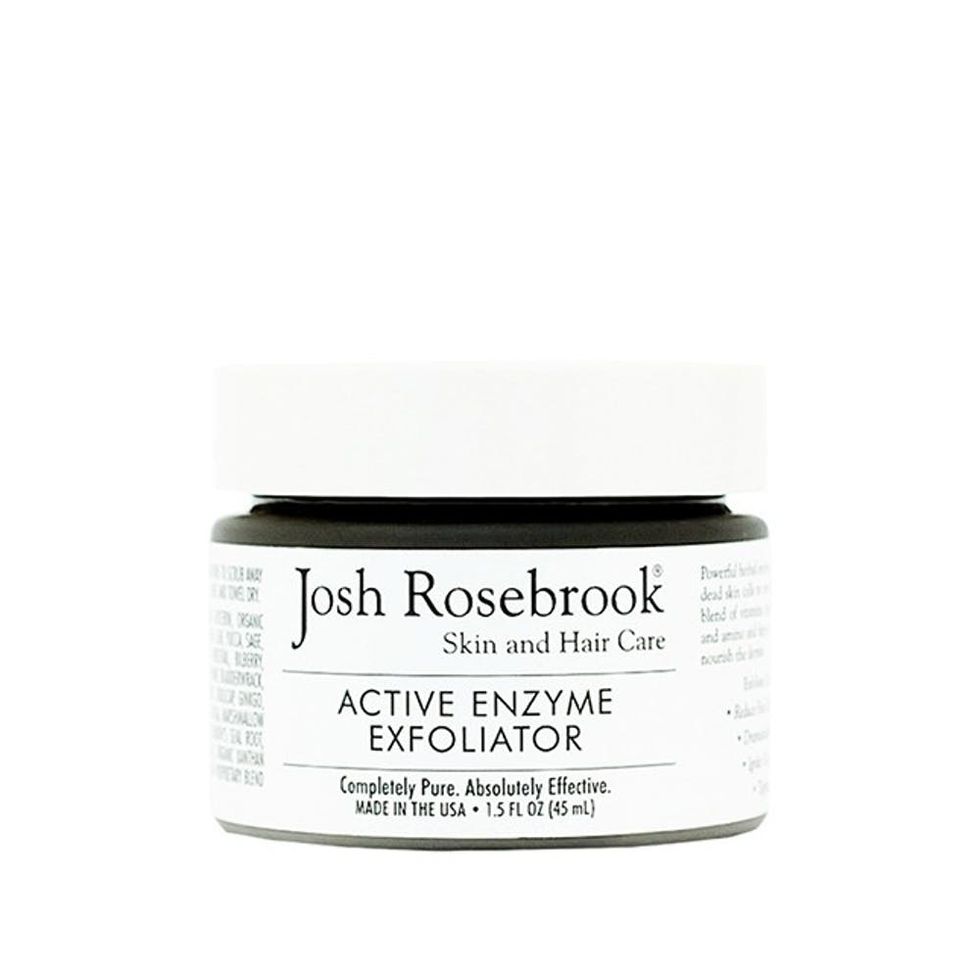
2. Josh Rosebrook Active Enzyme Exfoliator ($60): If your skin is neither oily nor dry, you can get away with using just about any exfoliant. That said, if you’re in need of a complexion makeover, this natural treatment, containing fruit enzymes and ground walnut shells, sloughs off dead skin cells like a boss.
Face Scrub for “Normal” Skin (Neither Dry Nor Oily)
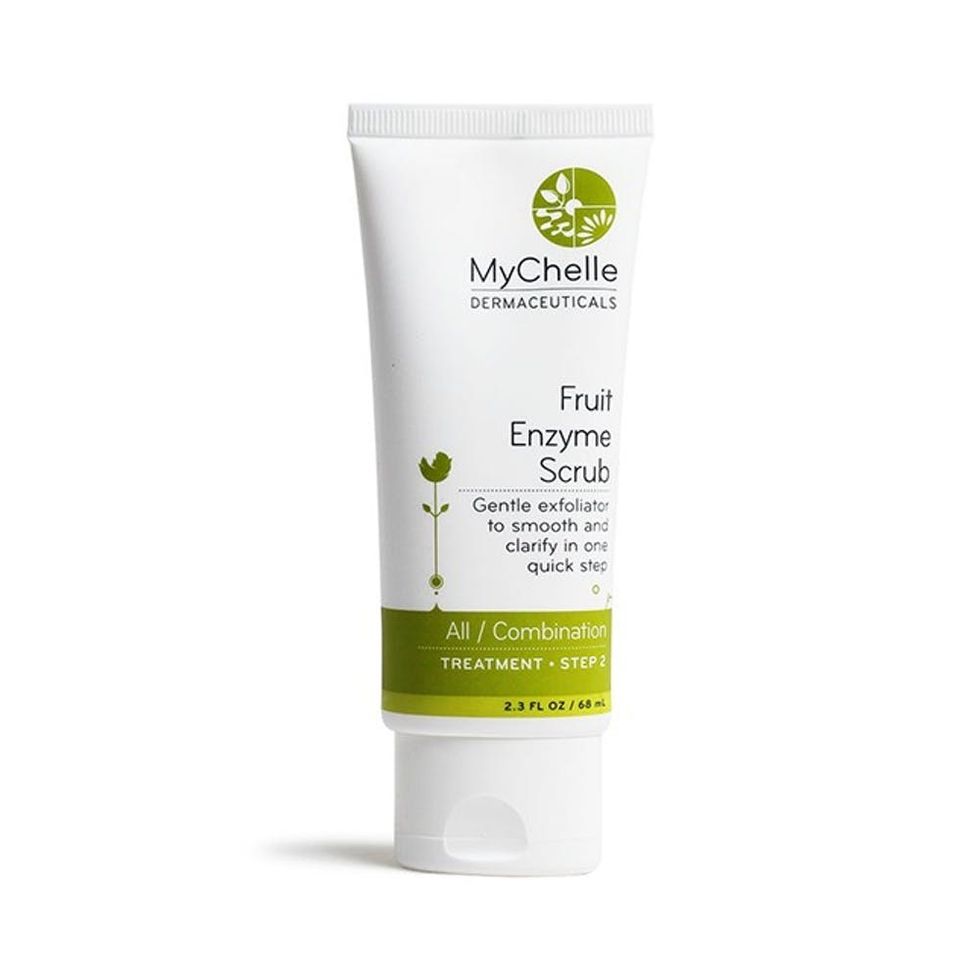
3. MyChelle Fruit Enzyme Scrub ($18): Oilier skin types benefit from a clarifying scrub, making this natural formula a good bet. This scrub uses gentle jojoba beads to dissolve the gunk in your pores and eliminate dead skin cells, so you’ll be left with a refreshed and renewed mug.
Face Scrub for Oily Skin

4. REN Micro Polish Cleanser ($30): Those with blemish-prone skin will benefit from using a chemical exfoliator versus an abrasive scrub. Pick up something like this AHA-filled formula, which will get at clogged pores and bacteria far below the surface.
Face Scrub for Acne-Prone Skin
Tata Harper Regenerating Cleanser
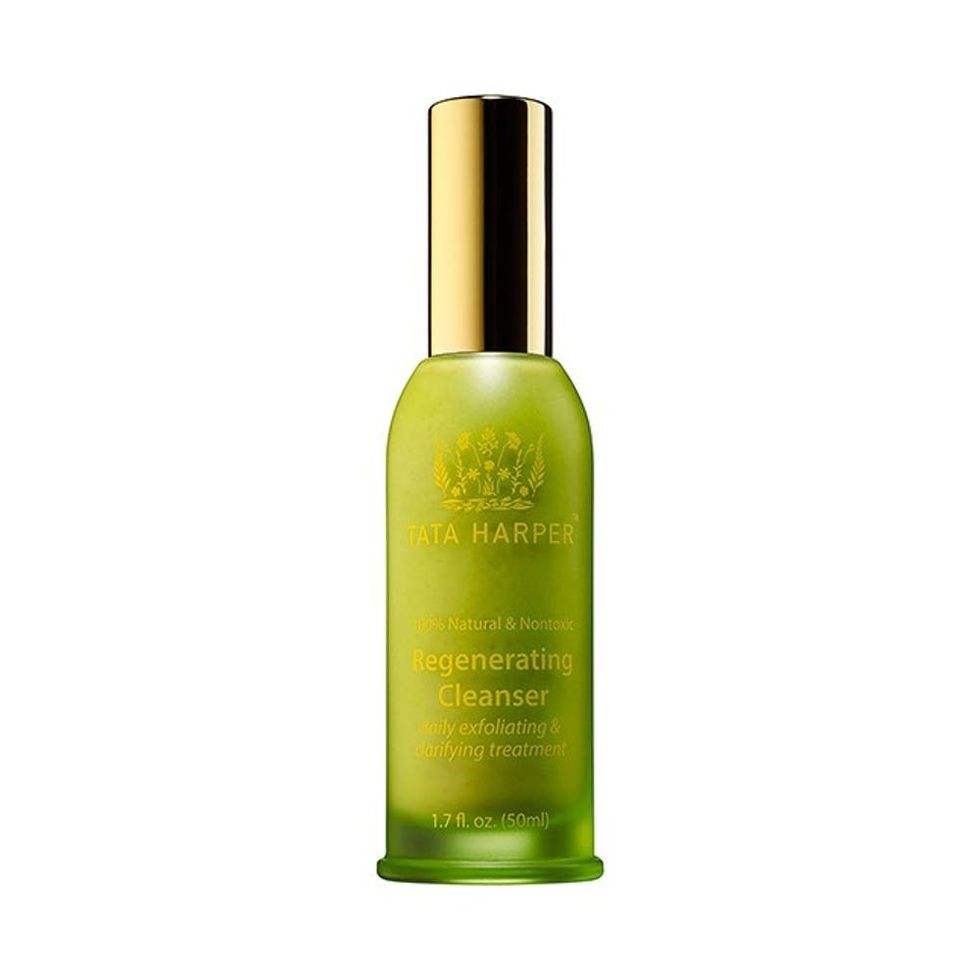 must for dry complexions, as it will get rid of your dry, flakey skin. This particular product is actually a cleanser and exfoliant in one, so it’ll remove dead skin cells while simultaneously hydrating, so you’ll look (and feel) brand spankin’ new.
must for dry complexions, as it will get rid of your dry, flakey skin. This particular product is actually a cleanser and exfoliant in one, so it’ll remove dead skin cells while simultaneously hydrating, so you’ll look (and feel) brand spankin’ new.
Face Scrub for Dry Skin
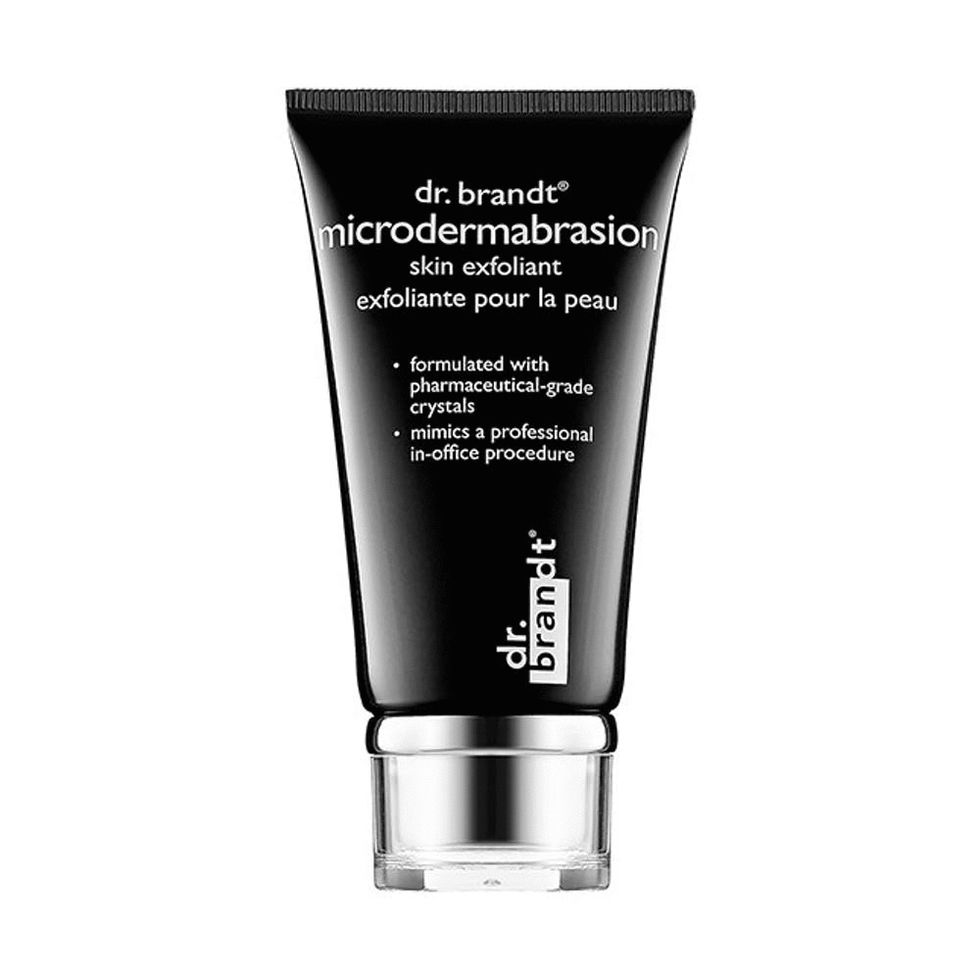
6. Dr. Brandt Skincare Microdermabrasion Skin Exfoliant ($78): Aging skin will benefit from an AHA (aka alpha hydroxy acid) formula. The chemical exfoliant penetrates skin to a deeper level, helping eliminate dryness and signs of aging, like fine lines and discoloration. This particular option is made specifically for aging skin.
Face Scrub for Aging Skin
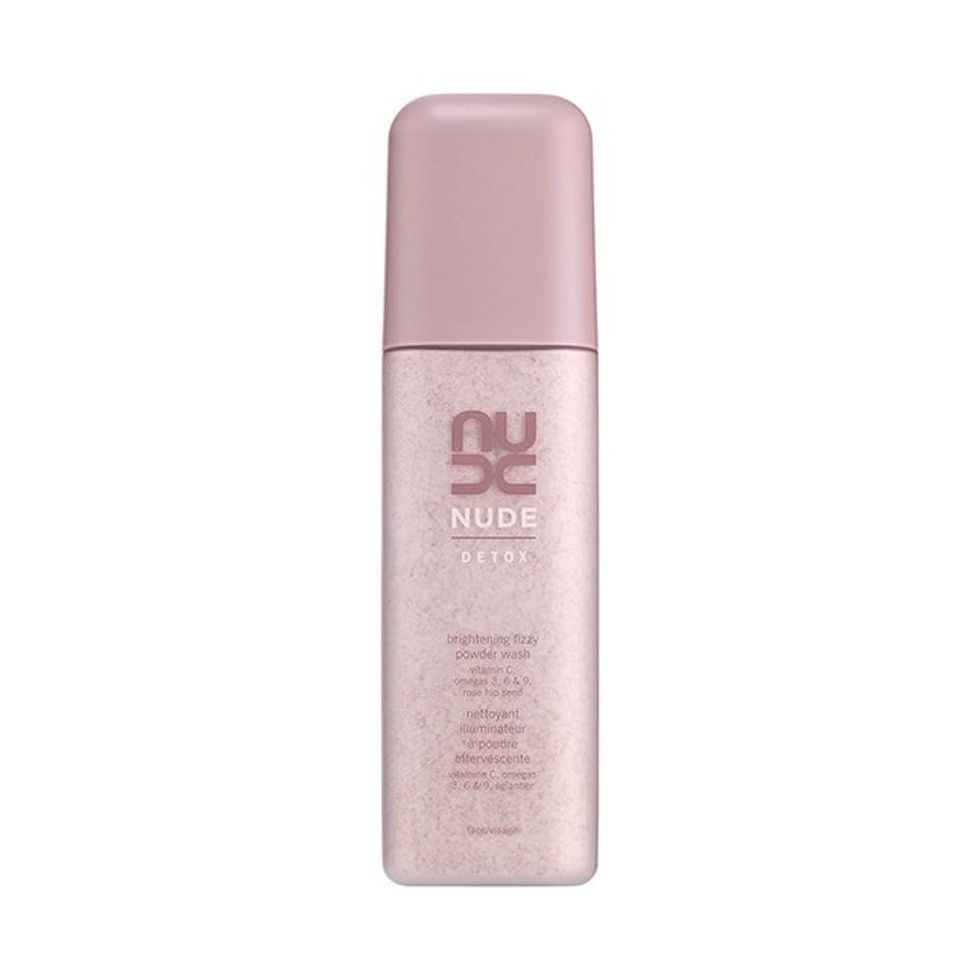
7. NUDE Skincare Detox Brightening Fizzy Powder ($42): Get uneven skin glowing with gentle yet effective exfoliation. The powder takes on a fun and fizzy consistency when activated by water, easily removing dead skin to leave your complexion bright and more evenly toned.
Face Scrub for Uneven Skin
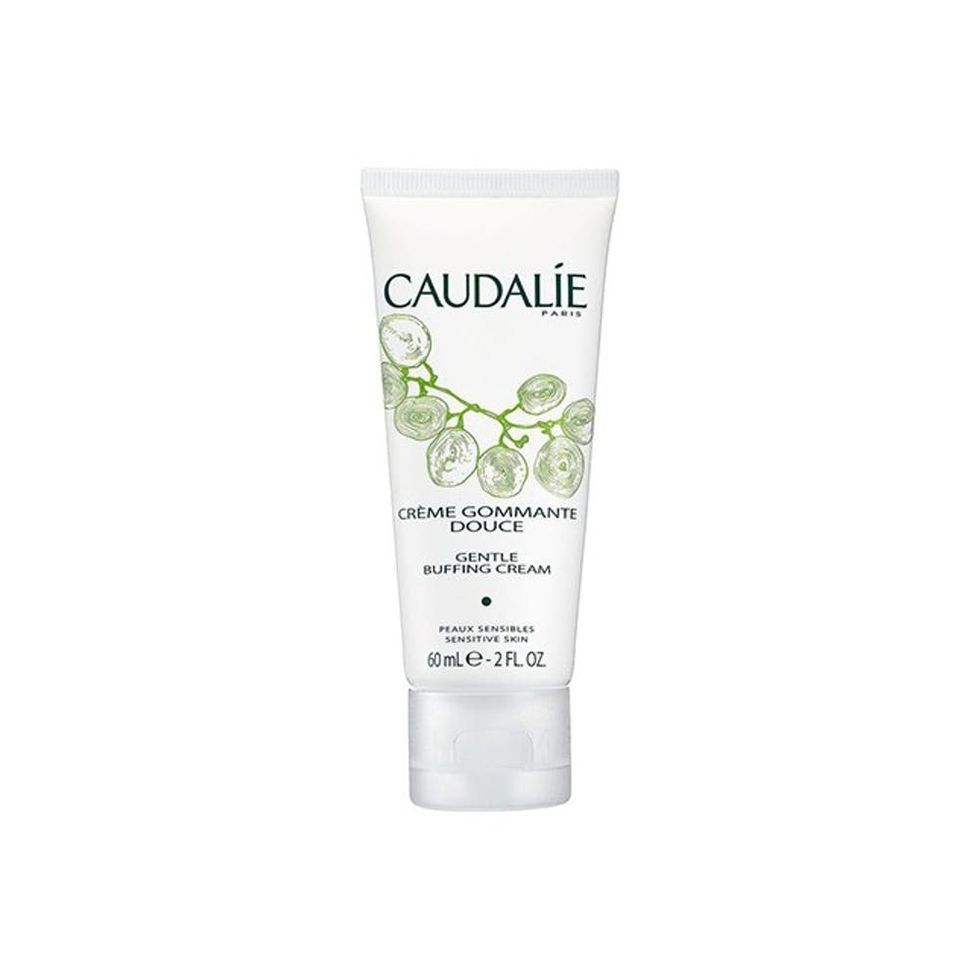
8. Caudalie Gentle Buffing Cream ($35): In some cases, it’s best to avoid exfoliating irritated skin at all, as it can further aggravate the sensitivity. For those in need of a refresher, it’s important to focus on using only the most gentle and hydrating of products. This rich cream is a super gentle exfoliator, eliminating impurities and dead skin cells while creating a soothed and radiant complexion.



















